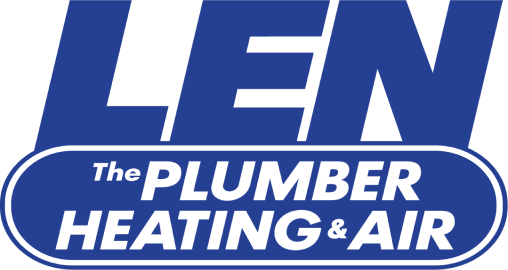If you struggle to stay comfortable in your home due to imbalanced humidity, you may benefit from a whole-home humidifier. At Len The Plumber Heating & Air, our team offers the air quality solutions Northern Virginians need to ensure their homes remain comfortable, including whole-home humidifiers.
With over 30 years of expert home services and respectful customer care, you can count on our team to deliver the high-quality experience you deserve.
Schedule whole-home humidifier installation in Dale City, Arlington, Alexandria, or surrounding areas by calling our team at (800) 950-4619 today!
How Do Whole-Home Humidifiers Work?
There are three types of whole-home humidification systems that homeowners can have installed:
- Bypass humidifiers: Connected to your air handler or furnace’s return section, bypass humidifiers rely on the furnace’s air blower to circulate moisture through the air ducts in your home. It only operates when the furnace is on.
- Fan-powered humidifiers: Equipped with its own fan, these humidifiers circulate moisture through your ductwork and can work even when the furnace is not in operation.
- Steam humidifiers: This humidifier uses a heating element inside a water-filled canister to generate steam, which is then circulated through the home via your air ducts.
Benefits of Installing a Whole-Home Humidifier
Adding a whole-home humidifier to your home can provide many advantages for you and your family, including:
- Improved respiratory health
- Protection for wooden furniture
- Reduced static electricity
- Reduced skin irritation
- Enhanced energy efficiency for heating and air conditioning units
- Preservation of indoor plants
Reap the benefits of a whole-home humidifier for your home by calling (800) 950-4619 now to book humidifier installation in Arlington, Dale City, Alexandria, or surrounding areas.
What’s the Ideal Humidity Level for Northern Virginia Homes?
The ideal humidity level for your home is between 30% to 50%. When humidity levels are over 50%, it can create the perfect breeding ground for mold and mildew, dust mites, condensation, and general discomfort. On the other hand, low humidity can contribute to asthma, allergies, dry skin, chapped lips, static electricity, and more.
Here in Northern Virginia, the average annual humidity percentage outside is 64%, meaning that most homes struggle with high humidity in the spring and summer. However, humidity levels during the winter can plummet as cold air creeps in. Pair that with a furnace that produces dry, warm air, and you may need a whole-home humidifier for your household.
Request Whole-Home Humidifier Installation Today
At Len The Plumber Heating & Air, our team is committed to keeping our customers’ lives moving, delivering the high-quality service experience they deserve from a team of experienced technicians who care.
With upfront pricing and financing options on approved credit, we ensure you can get air quality solutions that suit your budget. Our local technicians know what Northern Virginia residents need most to keep their homes comfortable, allowing us to provide the personalized solutions you need.
Book a whole-home humidifier installation by calling our team at (800) 950-4619 today.
Frequently Asked Questions
How often do I have to replace a furnace humidifier filter?
Do whole-home humidifiers cause mold?
What are the pros and cons of different types of furnace humidifiers?
Each type of furnace humidifier offers its own set of advantages and disadvantages:
- Bypass humidifiers: The biggest advantage to a bypass humidifier is its drum-style configuration doesn’t use a drain, meaning all the water is distributed directly into the home. However, standing water makes these systems more prone to mold growth.
- Fan-powered humidifiers: One benefit to a fan-powered humidifier is that it doesn’t rely on a furnace to operate. However, they are more expensive to operate than a bypass humidifier and are also noisier.
- Steam humidifiers: These units require lower maintenance than their fan-powered and bypass counterparts and also provide the greatest energy efficiency and lowest risk for mold growth. However, they are the most expensive to install.
 Coupons
Coupons 


